By Chris Rodgers and Reid Nakamura, Photography by Erik Carter
This year, the Los Angeles LGBT Center officially observes Juneteenth—the first time the organization will do so in our more than 50-year history. There has been a collective awakening around the observance of Juneteenth since the Black Lives Matter protests of 2020, with many people referring to it as the “Black Independence Day.” The truth about Juneteenth is, of course, somewhat more complicated: Technically speaking, “Freedom’s Eve” occurred on December 31, 1863 when enslaved and free African Americans gathered to hear the news that the Emancipation Proclamation had taken effect. At midnight, the enslaved people in Confederate States were declared legally free. Unfortunately, not everyone was able to exercise their freedom—some areas were still under Confederate control, like Galveston, Texas. On June 19, 1865, approximately 2,000 Union troops arrived in the region to officially declare more than 250,000 enslaved Black people in the state were free by executive order. The day was thus named “Juneteenth.”
The nuance of Juneteenth—it being the liberation after the official decree—is important. It begs the question of who gets left behind, or who is the last to be liberated. It therefore seems somewhat fitting that Juneteenth would fall right in the middle of Pride Month, a time when our community is celebrating but also confronting similar questions about the legacy of our movement, particularly surrounding matters of racial equity.
To help illustrate some of the celebration and tension of this important day, we invited the photographer Erik Carter to the Center to conduct a series of portraits of staff, clients, and supporters of our organization. Above all else, their messages to us were about resilience. As the Drag March performer Honey Davenport put it: “History tells us that our darkest times happen before our brightest, so I haven’t lost hope.”
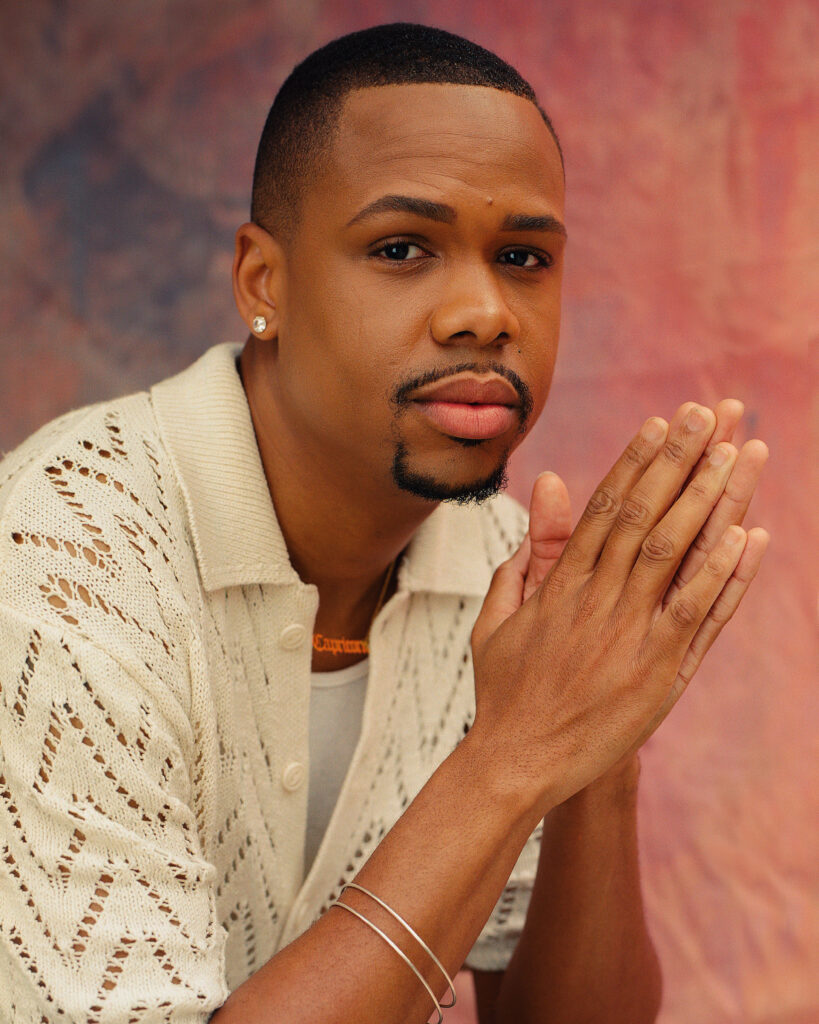
Jah McArthur, Human Resources Manager
“For me, Juneteenth has always been a day of fellowship,” says Jah McArthur, human resources manager at the Center. “My mind goes to having cookouts in the summertime and getting together to celebrate our culture, celebrate food, celebrate our lived experience.” But June 19 is also a day to “show that we’re free—what that looks like and what that feels like,” he says. “It’s one thing to celebrate Fourth of July, but it’s a whole other thing to celebrate the freedom of African Americans in a country that doesn’t always seem to appreciate us.”
Much like Pride season, Juneteenth is a celebration of both freedom and community, McArthur says. Having it recognized as a federal (and Center) holiday honors that intention. “We can share our experience and our history, but it’s refreshing to not just say that we are free, but also to show it. To set a day aside for us to take some time out to do whatever it is that we love.”
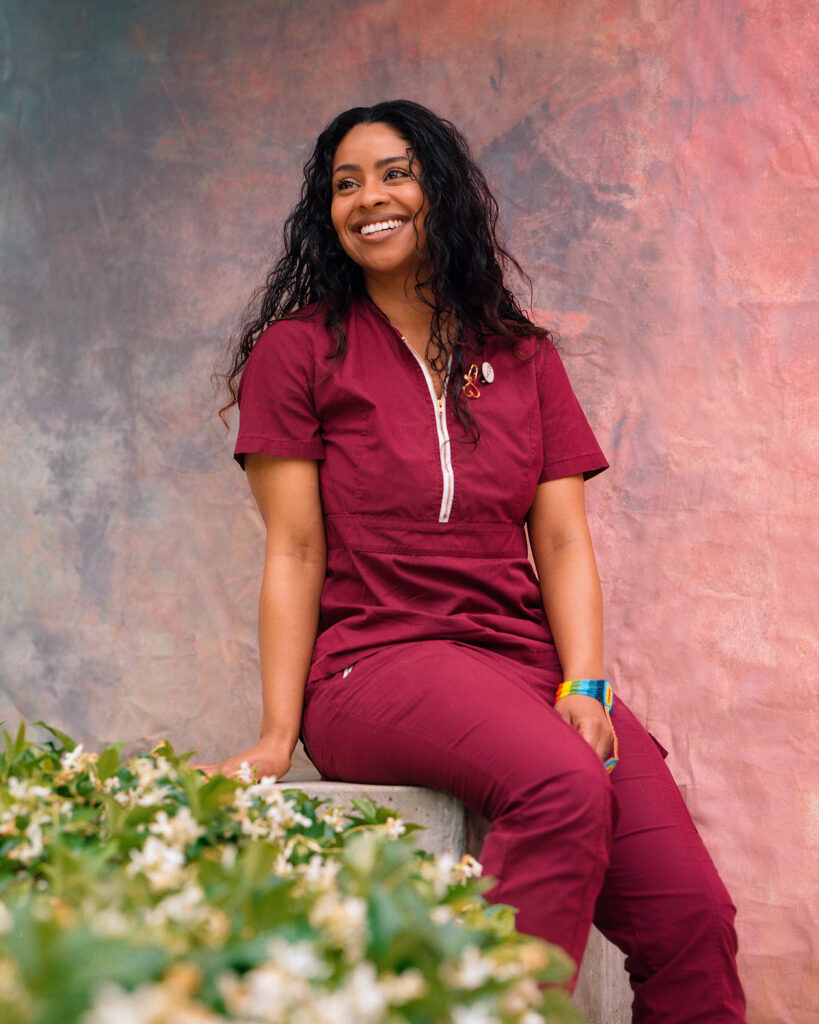
Asha Benton, LVN Care Coordinator
“Juneteenth is a day of liberation for every Black person,” says Asha Benton. “It’s about freedom, opportunity, the ability to lift our voices and pursue our dreams.” As an LVN care coordinator in the Center’s Health Services department, Benton works to uplift the voices of patients by assisting them with everything from refills on medications to communicating with their providers. But in her own professional life, she takes guidance and inspiration from other Black women in her field. She cites Ayana Elliott, the Center’s medical director of community medicine, and assistant nurse manager Jeannette Boone as two people she admires in particular.
“Miss Boone has been at the Center for over 10 years, maybe even 20, and she’s been able to remain true to herself as a strong Black woman and gain respect from her peers,” Benton says. “She’s always telling me, Asha, choose your battles. Make sure you know what’s going on. If you want something, you have to go for it. Those things inspire me every day. When I come into work and see her, I’m like, Okay, I can do this too.”
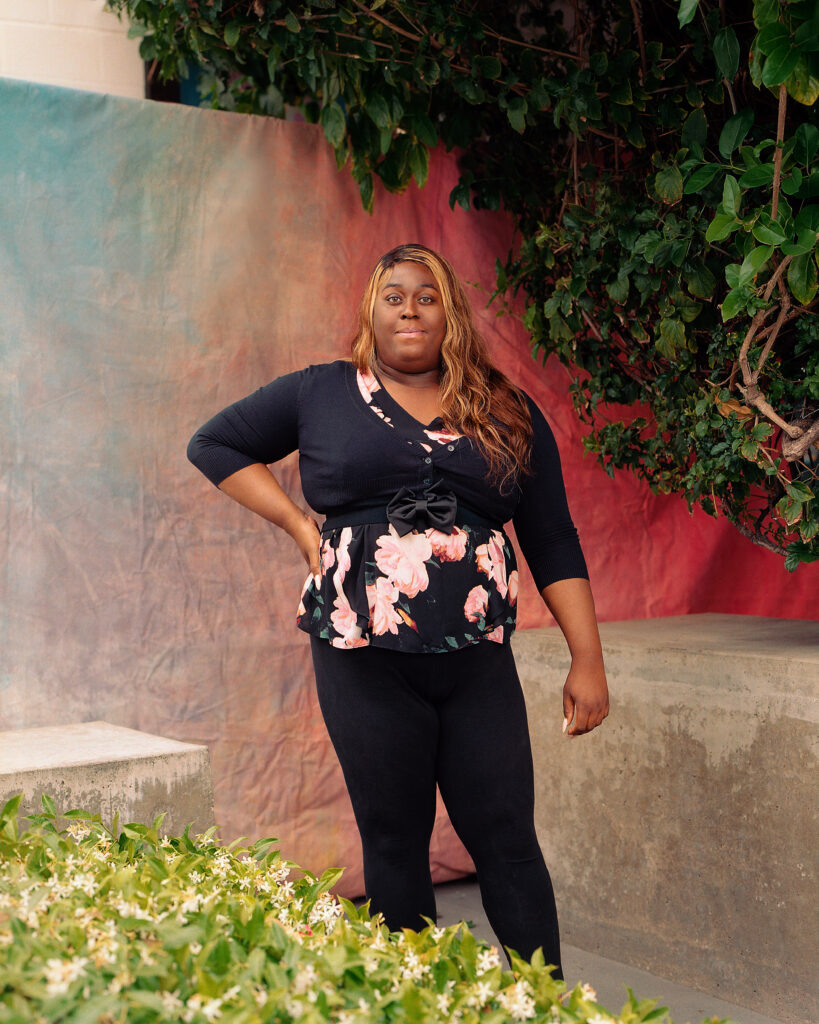
Kadence King, Linkage to Care Specialist at Trans Wellness Center
Kadence King, a self-described “Southern belle,” grew up celebrating Juneteenth every year in North Carolina. “We go to the beach, have a parade, have barbecues,” she says. “We light up the sky with fireworks like it’s the Fourth of July. It’s a beautiful celebration to talk about history and remember where we came from.”
Moving to California showed her that not every community grew up celebrating Juneteenth in the same way. “I feel like a lot of people in California didn’t even know what Juneteenth was,” she says. (The day wasn’t even commemorated as a federal holiday until 2021.) “But it does feel like we’re moving forward. We have this day to solidify that we are free and to come together to celebrate each other. Because we’re stronger together than we are divided.”
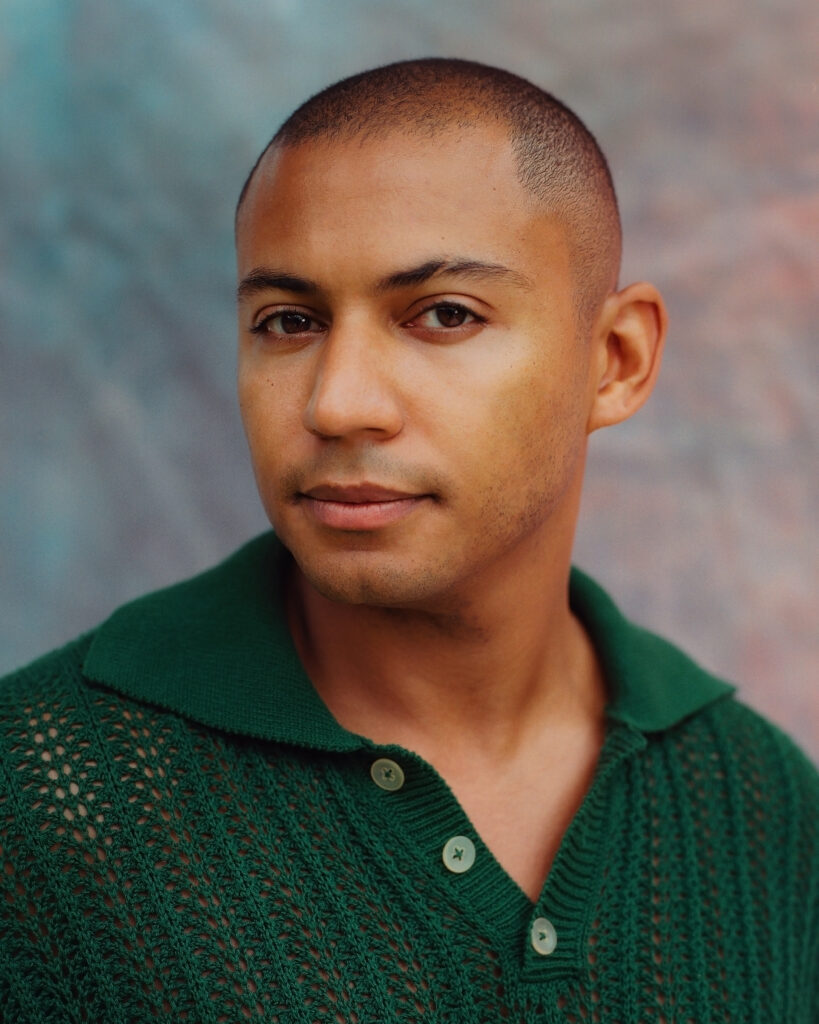
Zach Stafford
That Juneteenth falls within Pride month, and just a few days from the anniversary of Loving v. Virginia, is a poetic coincidence, says journalist and producer Zach Stafford. “Racism, homophobia, gender-based biases, these aren’t just abstract, separate concepts,” he says. “For me as a queer Black person, and for a lot of other people, these things all hit center.”
Referencing queer writer Gloria Anzaldúa, he says that LGBTQ+ people of color sit at the borders of culture and “have a great view of how power works and how we’re not centered.” That perspective infuses his work as a journalist and, more recently, as a producer on the Tony-winning musical A Strange Loop alongside other queer people and people of color.
“I used to think everything had to be participatory—you need to go march; you need to be active,” he says. “But I’m learning that paying witness, looking through a window of someone’s life, can be just as powerful as marching down the street. To enjoy and be entertained by something is equally as important. These things can and should exist at the same time.”
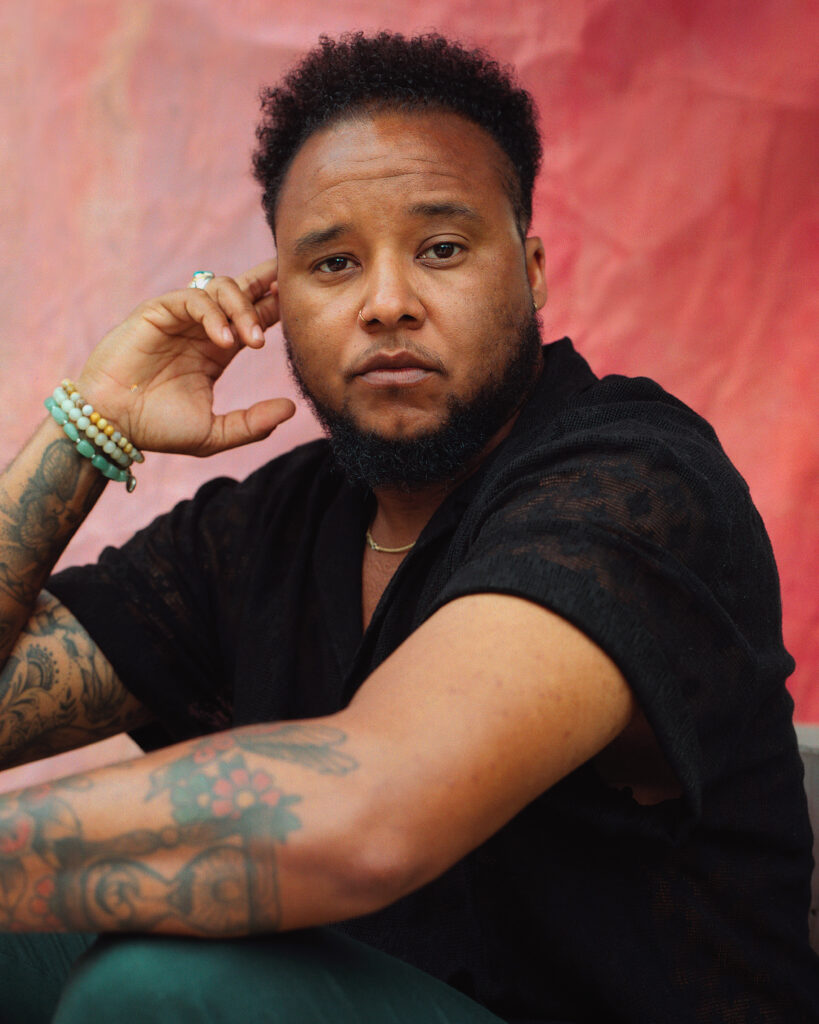
Court Young, Host Homes Coordinator
“Juneteenth is a day of liberation for Black folks,” says Court Young, coordinator of the Center’s Host Homes program. “It’s a day that helps us realize how far we’ve come, but now it’s also about how far we have to go. I think it’s really important to constantly be looking at how we can make things better for each other, and Juneteenth is a holiday that challenges folks to think about what they can do to make the life experience of a Black person in America more peaceful and more successful.”
The Host Homes program connects young people experiencing homelessness with members of the community who have extra space for short-term housing. “We’re working with youth who are either in school or working, or working toward one or the other, and we help connect them to a safe space where they can get on their feet and stay on the path toward meeting their goals,” Young says.
Their advice to other queer Black people is the same thing they try to convey to youth in the program: “Never stop believing in yourself. There’s so much that lends itself to feeling empowered when you just stand in your truth and love yourself for who you are.”
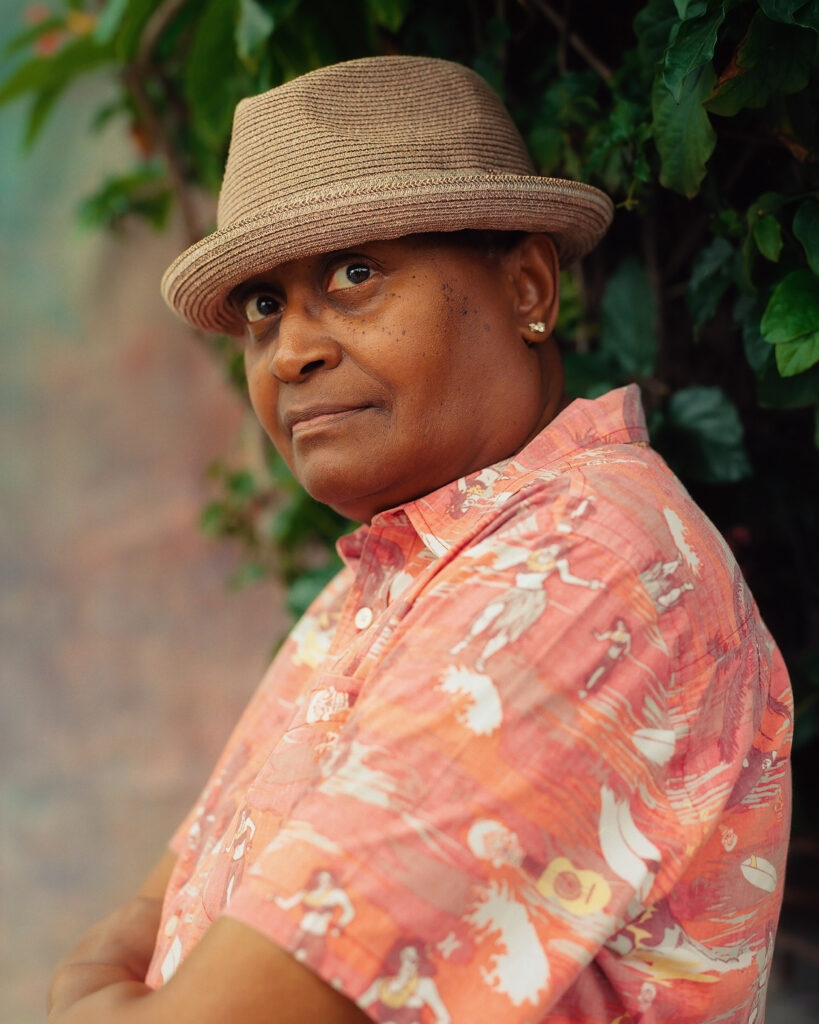
Renee Chapman-Best, Associate Director of Youth Housing
When Renee Chapman-Best first started working in the Center’s Youth Services department, Juneteenth was still a little-known holiday mostly celebrated in the South. Chapman-Best would organize a small Juneteenth gathering for Black staff members in a nearby park. “I’m from New York, and I probably didn’t even learn about Juneteenth until I got to high school—or maybe even college years,” she says. Now, it’s a federally recognized holiday.
“I celebrate Juneteenth because I think it’s important to reflect and consider where we’ve been versus where we are now,” she says. “And yes, sometimes it feels like not enough progress has been made for African Americans, but there are steps. And like we tell our members here, any step in the right direction is a positive step, no matter how big or small. Because where you are today is not where you’ll be tomorrow; this is just where you start your journey.”
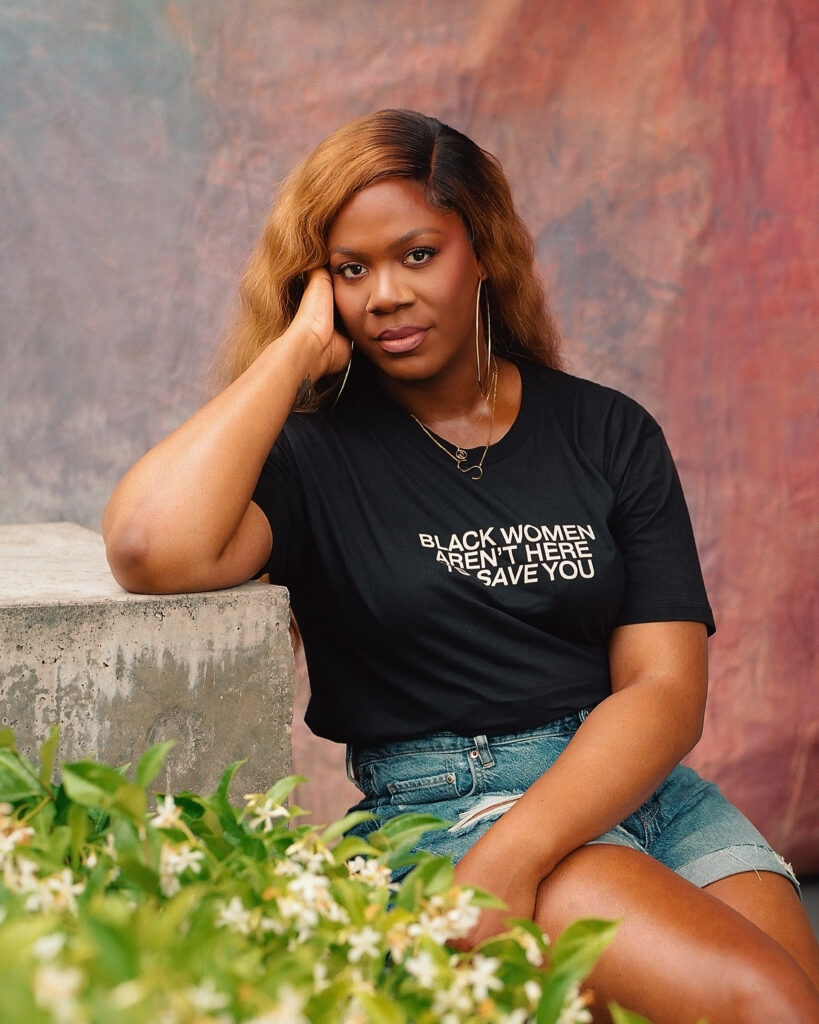
Shar Jossell
“For me, Juneteenth represents an all-encompassing freedom,” says writer and journalist Shar Jossell. “It wasn’t something that I was privy to until a few years ago, if I’m being honest. But it feels like in the wake of 2020, we’ve been able to reclaim it and make it applicable to all Black Americans as our own Independence Day.”
“These last few years, I’ve found myself celebrating Juneteenth by always trying to do something fun,” she says. “But I also try to have a moment of pause; a moment of reflection. Where was I last year versus this year? Where are we on a societal level? Have we moved the needle forward?” And though the answer to those questions isn’t always yes, Josell takes solace and inspiration from other Black women and finds joy and celebration through community events like those at the Center—she was a moderator for a discussion at our Trans Town Hall on Friday. “Every time I step through those doors, I feel welcomed and know I’m going to have a good time,” she says. “And I know that other people feel the same way. I can’t imagine L.A. without it.”
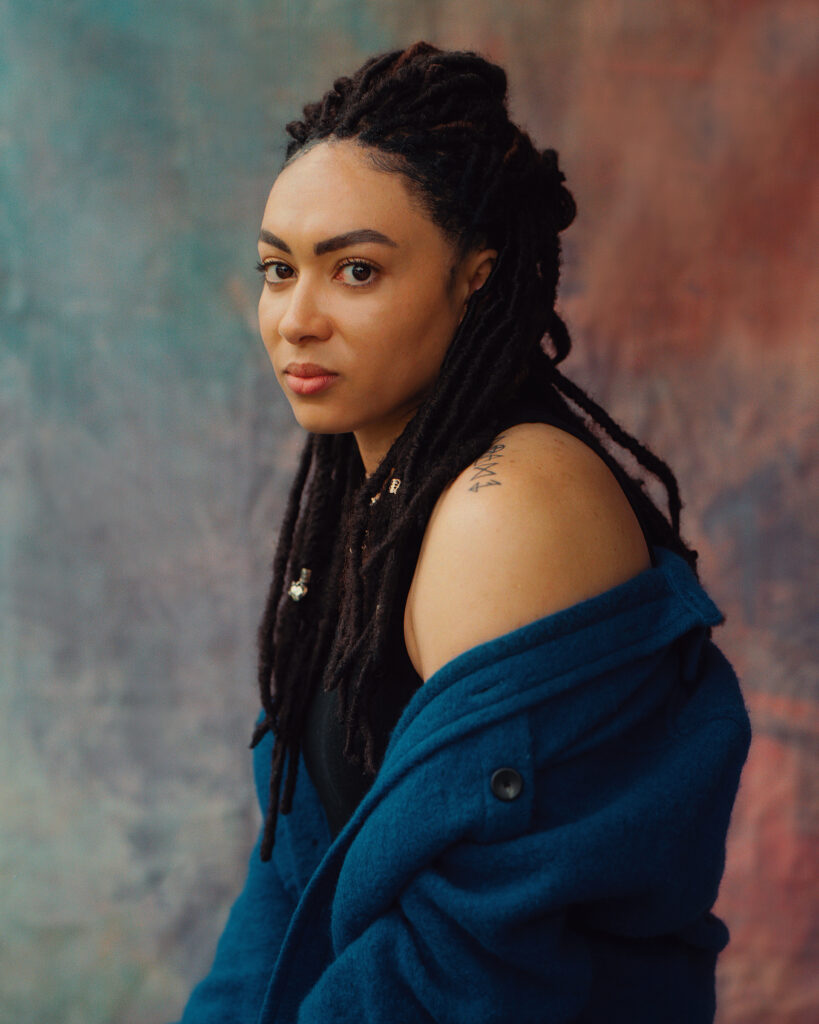
Amber Whittington
“Part of my family is from the South, so Juneteenth was always a sensitive spot for my family, because our name comes from slavery,” says activist and influencer Amber Whittington. “It’s awesome that the day is being acknowledged, but we still have a lot more work to do to level the playing field for everyone. We need to recognize how our institutions are still working against people of color and African Americans, specifically. We need reparations. We need new systems that work for us.”
Those struggles are only compounded at the intersection of Black and queer identities, Whittington says. “As a Black community, we need to do better at being allies and being respectful to the LGBTQ+ family members within the community. And within the LGBTQ+ community, we have so much work to do to end segregation and discrimination,” she says. “The first time I toured the Center, it had me in tears to hear the number of people being helped and the positive impact the Center was having on the community.” In 2018, Whittington received the Center’s Bayard Rustin Award at the annual Future Is Black event for Black History Month. This year, she presented the award to its newest recipient, Big Freedia. “I want to come back every year to celebrate that next person and solidify that we’re a family, and we’re in this together.”
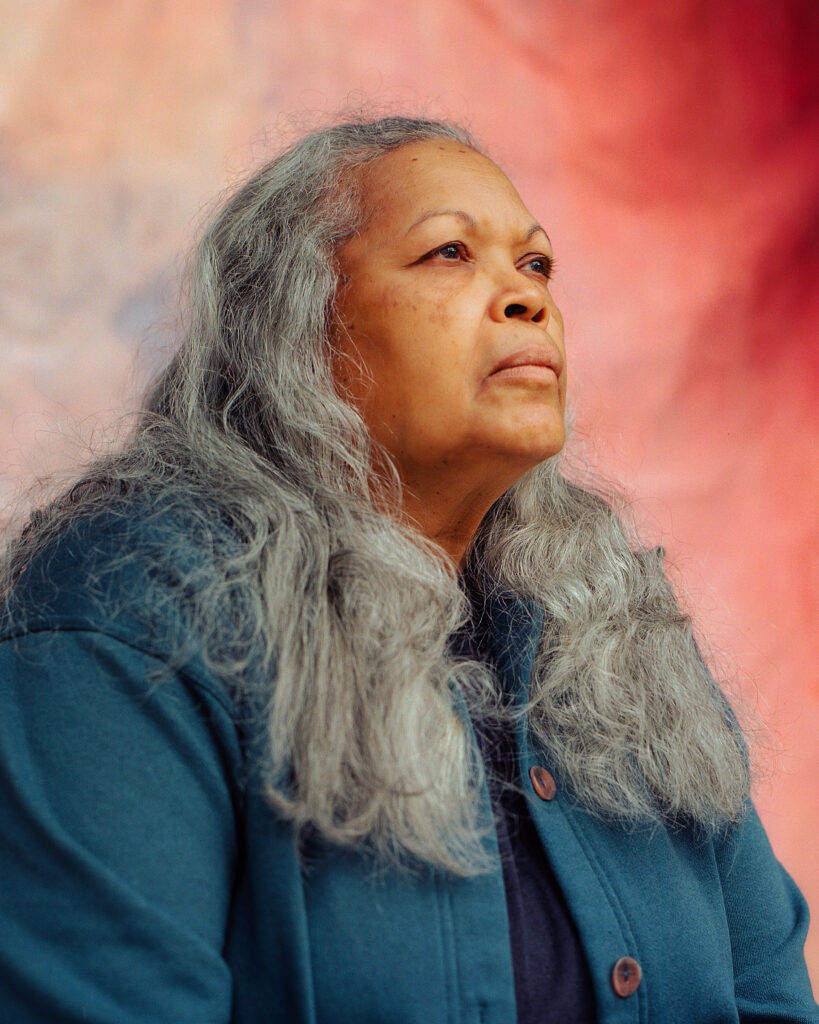
K.A. Lalsingh
Having grown up in the Caribbean under British rule, K.A. Lalsingh was more used to celebrating Carnival than Juneteenth—until she moved to the U.S. in 1970. These days, Lalsingh utilizes that outside perspective to promote empathy and openness through groups and programs organized by the Center’s Senior Services department. “I have a lot of lived experience with being multi-ethnic, being marginalized, and being micromanaged by a dominant culture,” Lalsingh says. “And I want to share those perspectives and pass my knowledge on in any way I can.”
Lalsingh is a founding member of the Racial Justice Allies group, originally a book club that has since expanded into a sharing and discussion group that covers essays, personal narratives, and other media as well as books: “It’s a very diverse group that ranges in age from 50s to 80s. All representations of identities participate, and people bring their rich lived experiences to every conversation.” Lalsingh also hosts regular racial healing circles at multiple Center locations.
“You can read something in a book, but we grow by experiencing and hearing and seeing and contemplating. We can learn so much more through dialogue,” she says. “Curiosity is a big, big skill, and I want everyone to use it as much as possible.”
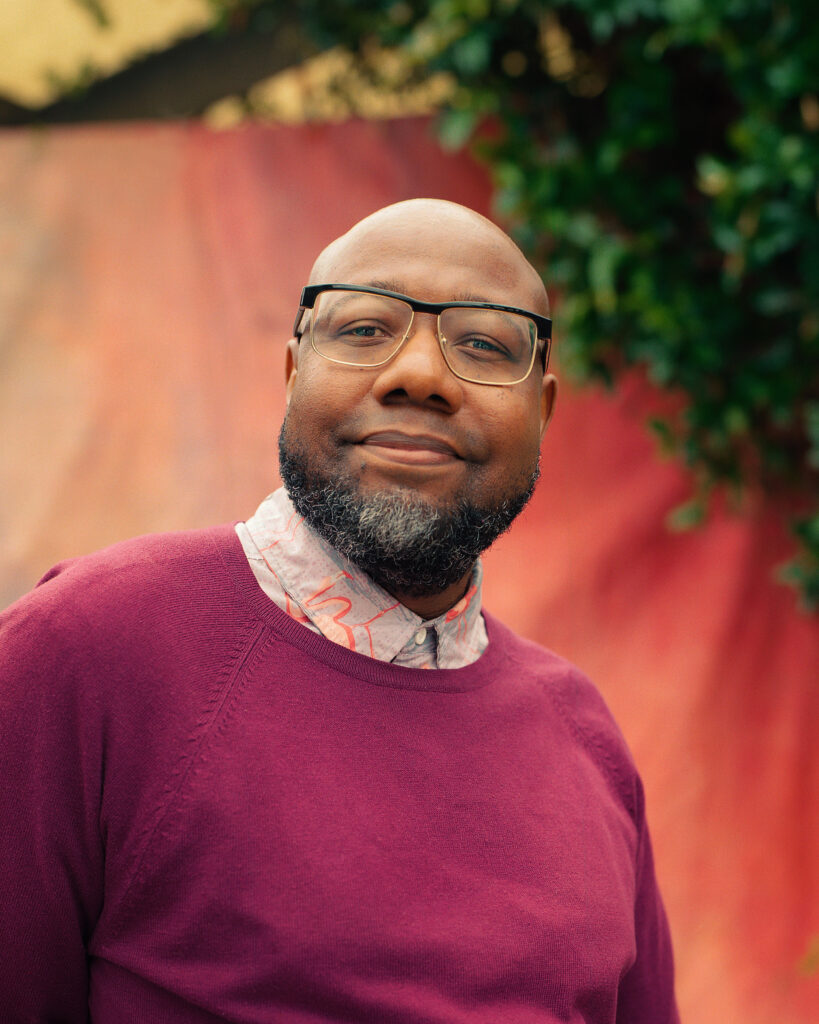
Spencer Robinson, Senior Services Activities Coordinator
“Juneteenth always reminds of my grandmother and all the sacrifices she made,” says Spencer Robinson, activities coordinator in the Center’s Senior Services department. “My grandma was born in 1914, and she raised me before I transitioned. So for me, Juneteenth is recognizing that my crown is paid for and I sit here on the backs of my ancestors.” This year, Robinson plans to return to his hometown in Oklahoma for a big extended family gathering. “It’s tough right now, it really is,” he says. “There’s a lot of work to be done, and it really begins with you. The best gift you give the world is your own self-awareness and empowerment. Start with your community, with your family. Get engaged at work or in community action.”
“A lot of the time, progress feels like two steps forward, three steps back,” he says. “But the seniors motivate me, and so does being around family. Any time I can pull up my ancestral support, that motivates me—I know that I can survive this and that I can continue to transcend.”
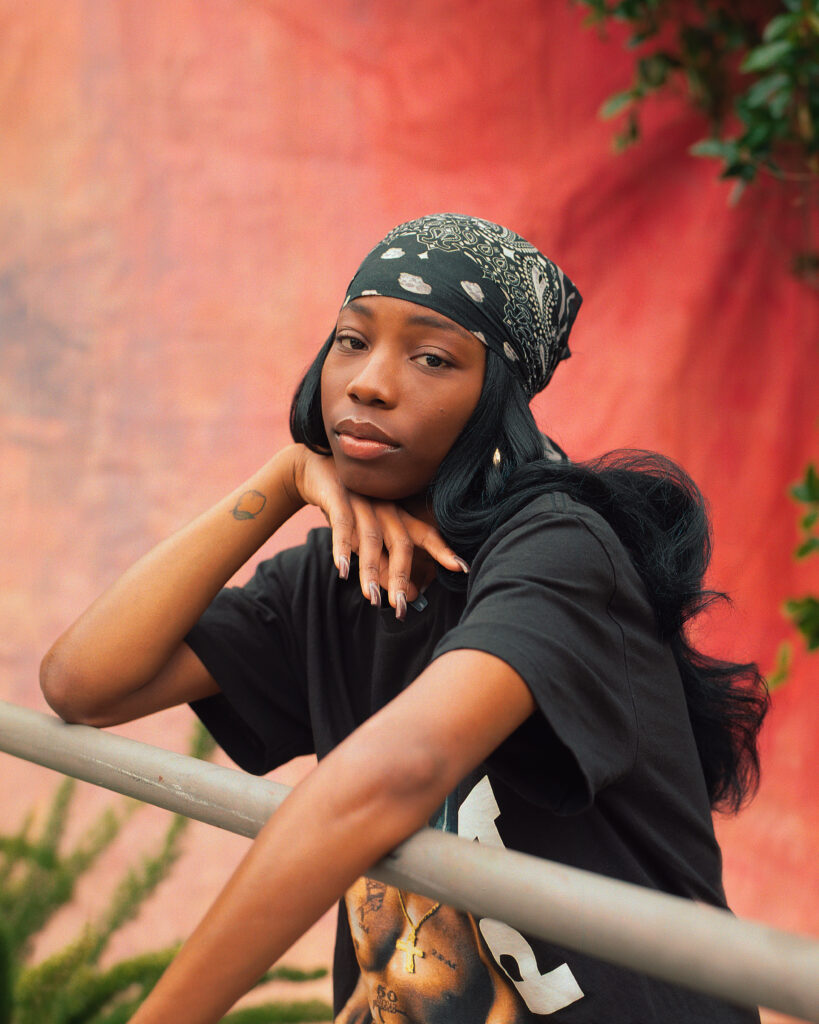
Blue Melody
If Blue Melody had a Juneteenth playlist, the first song would be “Peng Black Girls,” an ode to Black women by ENNY and Jorja Smith that’s at once laid back and aspirational. “Yeah, it goes hard,” Melody says with a grin. Melody has been a part of the Center since last year, and they now work as an intern in the Youth Services department. “It’s been a journey,” they say. “But it’s been good to see myself improve so much. I’m just excited to keep pushing.”
Growing up, “no one really taught me about my culture,” Melody says. “I had to learn and understand it as I grew. In a lot of ways, I am my ancestry—being Black is who I am.” A lot of that learning and growth happens by being around other Black and queer people, Melody says. “It’s a different mood, a different level of comfort. We need to build each other up, love each other, support each other—no matter what.”
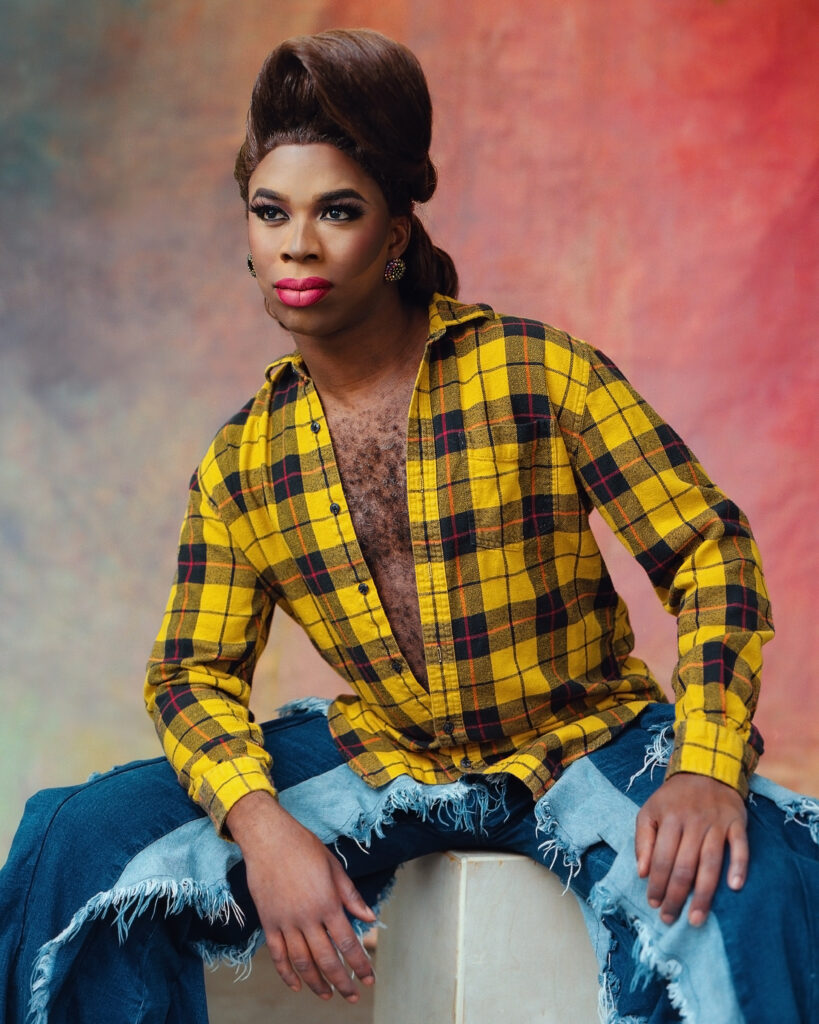
Honey Davenport
“Right now, in this moment, my drag is a protest,” says activist and performer Honey Davenport. “First, it was something that I just loved to do. Then, it became a fabulous career. Now, this thing that has brought me such great joy—my country is deciding whether or not it’s a criminal offense.” But in the face of it all, Davenport remains defiantly optimistic. “I think we’re in the middle of some kind of weird, funky boss battle. Like in a video game when it gets terribly hard right before the end. History tells us that our darkest times happen before our brightest, so I haven’t lost hope.”
In those moments when hope feels hard to come by, Davenport turns to their community and network of friends for support. “I’m lucky enough to have spent 16 years doing drag and being part of the queer nightlife in New York,” Davenport says. “As queer people, we’re always treated like we’re the problem or the disease, but places like the Center give us the ability to step in and really change each other’s lives. It’s been incredible these last few years to see how the community has come together in the middle of Pride month to take a moment to celebrate people of color.”
“The only thing we can do is breathe and try to enjoy every moment,” Davenport says. “You are where you are for a reason. Handle every situation and treat every person you interact with with the most love possible, because that really reflects back.”
Special thanks to: Jah McArthur of the DEI Committee, George Skinner, Ariel Bustamante, Michael McFadden, Mandy Litwin, and Sharon Brown.


